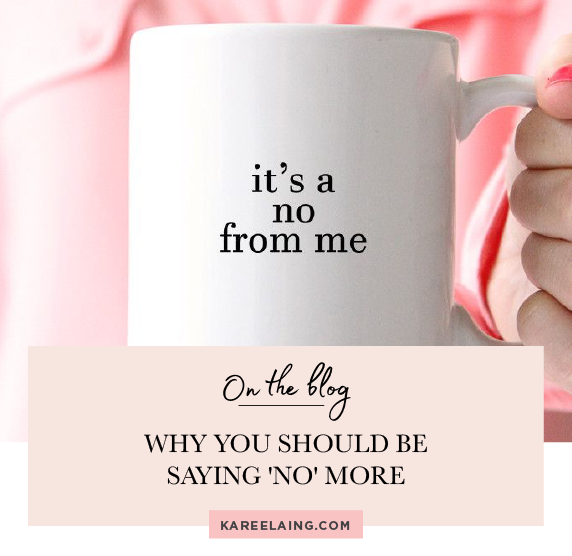Why Entrepreneurs Should Say ‘No’ More

Entrepreneurs are wired to say “yes.” If we weren’t, we never would have even tried to start our own business! We believe in our talents, we’re optimistic about our futures, and we welcome the challenges that come with being our own bosses. That’s why, when an opportunity presents itself, we feel compelled to say, “Yes, I can and I will!”
I love saying “yes” to an opportunity. But to be successful, I had to learn how and when to say “no,” too. It has been one of the hardest lessons I had to experience along my entrepreneurship journey.
Here’s why: In the early days, especially, I woke up every morning and went to bed each night worried about where my next client was coming from. I felt obligated to take up any opportunity that came along. After all, I thought, beggars can’t be choosers.
I had to learn the hard way how wrong that logic was, and most successful entrepreneurs have the same experience. Sometimes “yes” can often be counterproductive, and sometimes “no” can be the only prudent choice to make—even when you’re just starting out.
If you’ve started your own business, you probably know what it feels like to say “yes” to everything. There are real consequences: getting over-committed, wasting time, and feeling burnt out. If you say “yes” to every request, you aren’t running your business at its best. Even worse, people will start to expect you to say “yes” every time! Unfortunately, that’s just not possible. It’s time to start saying no.
No one likes to be told no, and many of us hate to disappoint the people we’re relying on for business. Done right, however, saying no can put you in a much stronger position to succeed. For one thing, clients and customers will respect your time more. They will form a more valuable assessment of your limits, and they’ll adjust their expectations accordingly.
Here’s what you should ask yourself before you say yes to anything:
- Is this something that will benefit my business?
- Am I able to accomplish this task without making a potentially detrimental sacrifice?
- Is this the best use of my time?
- Will this lead to future opportunities?
If you can’t answer “yes” to more than half of these questions, it’s time to say “no.” If you’re not sure how to tell someone no in a way that strengthens your business relationship, here are a few tips that I’ve learned:
Don’t waste time.
Don’t tell someone that you’ll consider a request when you know you don’t have the time or profit motive to do what they’re asking. Decline right off the bat and avoid being wishy-washy about it.
Be upfront.
Don’t make up an excuse you think they’ll accept. Be honest about why you can’t honor their request.
Suggest an alternative.
Offer up another solution to their problem or another way their needs might be met. If necessary, suggest someone else who can do the job. Clients and customers will respect that you understand their needs even if you can’t meet them.
Take a raincheck.
Is this something that you can do another time when you’re less busy? If so, offer up a specific date or time when you’re willing to say “yes,” instead.
Fear of missing out (FOMO) is a very real phenomenon that can be hard for entrepreneurs to overcome. If you really want to be an entrepreneur, however, you can’t let fear stop you! It’s time to get over your fear of saying no. Your time and your energy are valuable resources—only spend them on tasks that keep you moving forward towards your ultimate goal.


No Comments